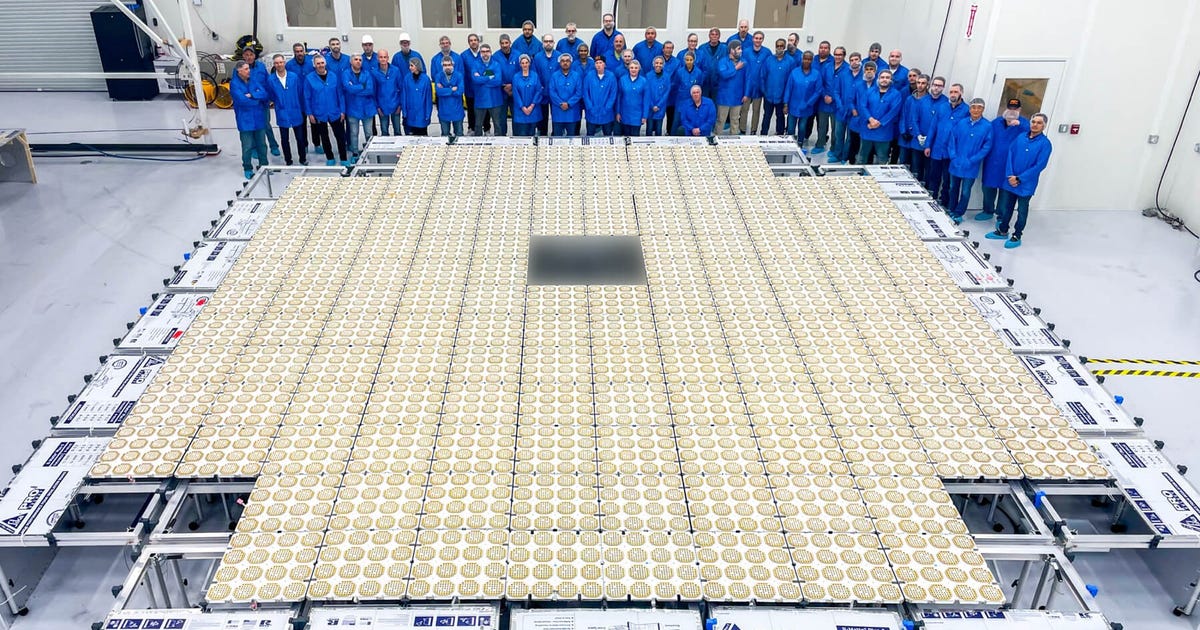
A Texas company is set to launch a satellite on a SpaceX Falcon 9 this month that will unfold a huge array in low-Earth orbit designed to provide a cellular broadband signal that mobile phones will connect to directly.
AST SpaceMobile will send its BlueWalker 3 test satellite to space on a mission from Cape Canaveral that will also launch another batch of Elon Musk’s Starlink broadband satellites to orbit.
The satellite has many people excited about a burgeoning market in space-based cellular networks, but the debut also comes at a moment when astronomers are concerned about the impact that the new age of satellite mega-constellations could have on their scientific observations of the universe.
At issue for astronomers is BlueWalker 3’s huge 693-square-foot (64-square-meter) solar array. The company hopes its final service satellites, called Bluebirds, will be even larger and would like to launch over a hundred of them.
Made in TX — size matters! #BlueWalker3‘s 693 sq ft array would be largest-ever commercial comms array in LEO. We’re building the first & only cellular broadband network in space backed by 2,400 patent and patent-pending claims. Removing before-flight tags today!!! 🦾🤠🇺🇸 #5G🌐📶 pic.twitter.com/Vx4oNVNYCK
— Abel Avellan (@AbelAvellan) August 31, 2022
On one side of the array are numerous solar cells that collect energy to power antennas on the opposite side, which are able to project “cells” of network coverage over specific areas of geography on the surface of the planet. The technology takes advantage of the geometry of low-Earth orbit, acting in a way as the world’s tallest cell phone tower.
“Many of us still experience gaps in coverage as we live, work and travel,” AST SpaceMobile Chief Strategy Officer Scott Wisniewski said in a statement. “We want our efforts to significantly increase the availability of cellular broadband globally by providing a space-based network to existing, unmodified mobile phones.”
The company has an experimental license from the Federal Communications Commission to test its system in Texas and Hawaii at first.
While the company is testing the satellite’s capability to connect to cell phones on the ground in the coming months, skywatchers will be tracking and documenting BlueWalker 3’s brightness.
“Observers on the ground will see bright sunlight reflected from this structure,” amateur astronomer Anthony Mallama writes in Sky and Telescope, asking astronomers to document the brightness of the satellite as it passes overhead.
The ultimate constellation could include over 100 Bluebird satellites with arrays even larger than that of the BlueWalker 3 test unit. However, the company recently announced that it would reduce the size of its first batch of operational satellites.
BlueWalker 3 is currently scheduled to launch on a Falcon 9 from Kennedy Space Center on Sept. 10.
